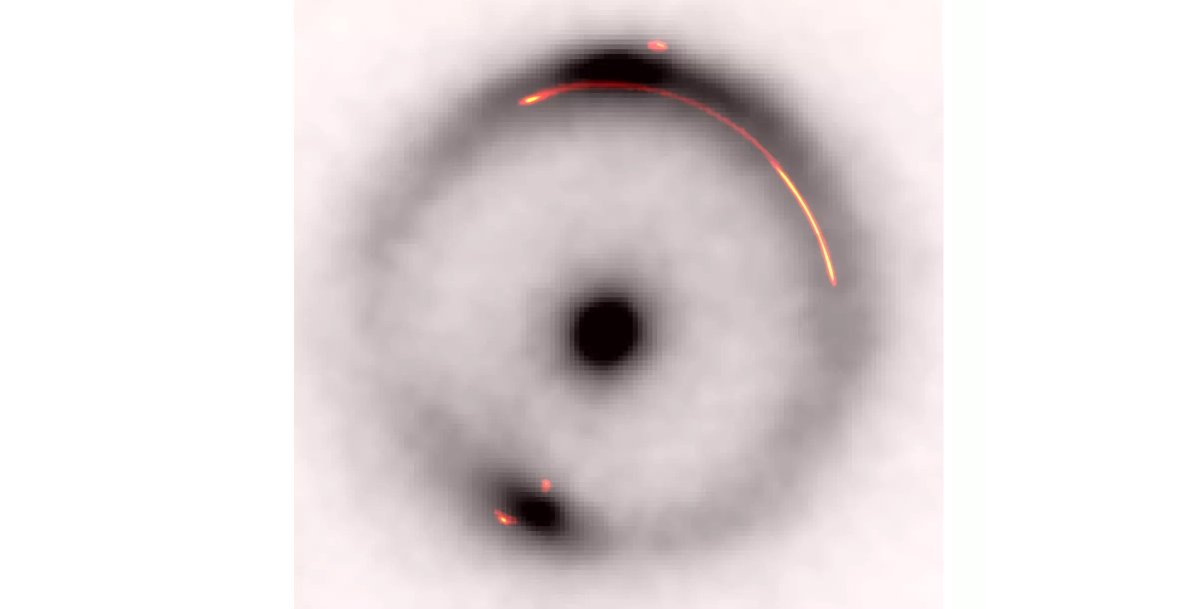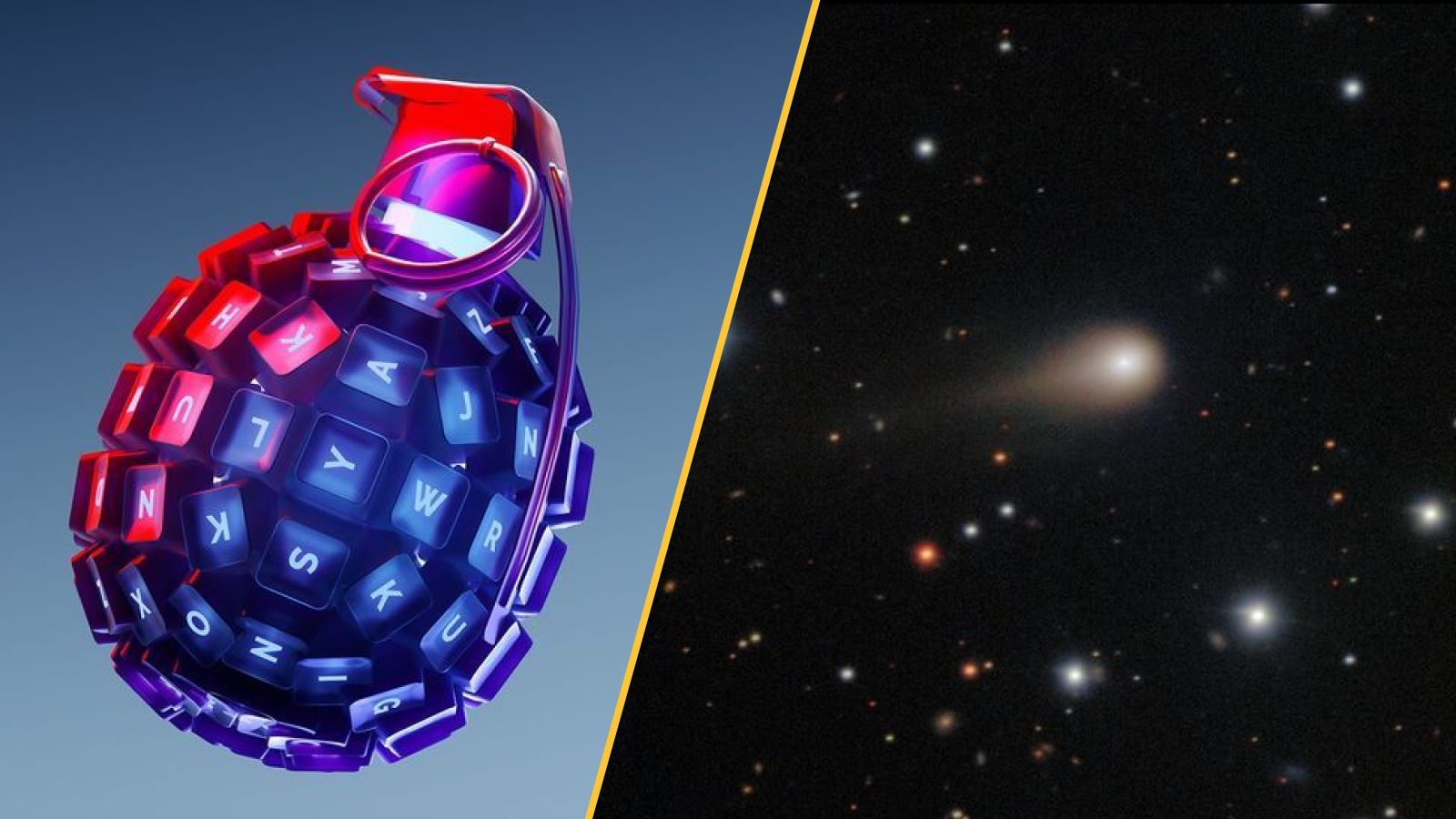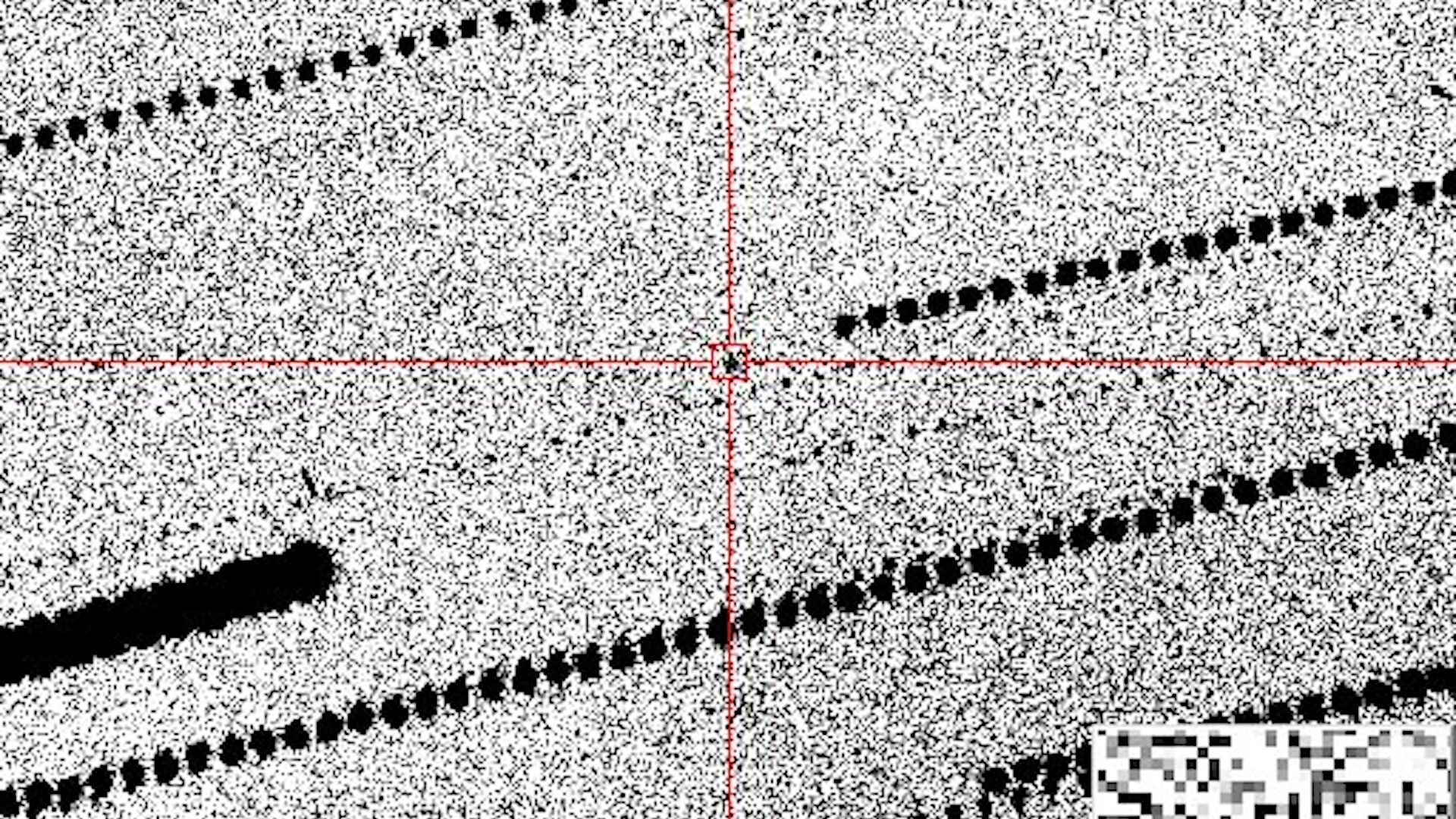Dark matter is believed to make up more than 80 percent of all matter in the universe, but what it actually is remains a mystery. Now, astronomers have found something that gives us a major clue. In a pair of new studies published in Nature Astronomy and Monthly Notices of the Royal Astronomical Society, the astronomers report that they’ve found …
Read More »Tag Archives: Astronomers
Science news this week: Astronomers close in on comet 3I/ATLAS’s origins, a strange gravity anomaly discovered off Africa and AI designs brand-new viruses
This week’s science news was bursting with mind-blowing astronomical observations, led by new discoveries about the origins of the comet 3I/ATLAS. The comet, an interstellar interloper from far beyond our solar system, was first spotted in late June. Now, scientists are finally closing in on its age and where it came from. They discovered it likely originated in the far …
Read More »Astronomers Uncover Hidden Rings of Light in the Deep Universe – SciTechDaily
Astronomers Uncover Hidden Rings of Light in the Deep Universe SciTechDaily Strange rings of light appear to link together in space in new discovery Mashable Most powerful ‘odd radio circle’ to date is discovered The Royal Astronomical Society Stunning Double Ring System Is The Most Powerful Odd Radio Circle Found So Far sciencealert.com 📡 Discovery in space of a strange and powerful double radio …
Read More »Astronomers spot young rogue planet gobbling up its surroundings – Reuters
Astronomers spot young rogue planet gobbling up its surroundings Reuters Astronomers spot fastest-growing planet ever detected Euronews.com Rogue World Found Gobbling Material at Unprecedented Rate sky and telescope.org Rogue planet caught behaving like a star in unprecedented observation CNN Rogue Planet Feasting Faster Than Any World Ever Seen SciTechDaily Source link
Read More »Astronomers Uncover the Most Powerful “Odd Radio Circle” Ever Seen — And It Looks Like a Galactic Venn Diagram
A still image from the animation of RAD J131346.9+500320. Credit: RAD@home Astronomy Collaboratory (India). When astronomers first started finding “odd radio circles,” or ORCs, they were baffled. These faint, ghostly rings of radio light seemed to float in deep space, surrounding galaxies like cosmic smoke rings. Now, scientists have discovered the most powerful and distant one yet, and this one …
Read More »Astronomers spot fastest-growing planet ever detected – Euronews.com
Astronomers spot fastest-growing planet ever detected Euronews.com Mysterious “rogue planet” spotted gobbling 6 billion tons of gas and dust a second CBS News Rogue planet caught behaving like a star in unprecedented observation CNN Rogue Planet Feasting Faster Than Any World Ever Seen SciTechDaily Scientists Spot “Rogue” Planet Floating Between Stars, Devouring Everything in Reach Futurism Source link
Read More »Astronomers Fume at Plan to Reflect Sunlight From Space at Night
A bold plan to power solar farms at night using sunlight reflected from space is placing a California startup on a collision course with the global astronomical community. Reflect Orbital has requested an FCC license to launch up to 4,000 satellites into orbit by 2030, significantly increasing the amount of clean, renewable energy that solar farms can produce. The project …
Read More »Astronomers Are Sounding the Alarm Over Dangerous Space Weather. Are We Prepared?
We have a suite of incredibly advanced, complex instruments to study the weather on Earth. Space weather isn’t any less complicated—quite the opposite, in fact—and so one would think that the measures we take to watch for such events should match that complexity. Astronomers, however, aren’t so sure we’re doing nearly enough. In a paper published October 6 in The …
Read More »Plan to Reflect Sunlight to Power Solar Panels at Night Upsets Astronomers – Bloomberg.com
Plan to Reflect Sunlight to Power Solar Panels at Night Upsets Astronomers Bloomberg.com Source link
Read More »Giraffe-size asteroid zooms past Earth closer than a satellite — and astronomers didn’t catch it until hours after
The near-Earth asteroid 2025 TF (red crosshairs) came about as close to Earth as the International Space Station on Wednesday (Oct. 1), evading detection until hours later. (Image credit: ESA / Las Cumbres Observatory) A small asteroid zoomed past Earth closer than most satellites last week — and astronomers didn’t notice it until hours later. The surprise asteroid encounter occurred …
Read More »




